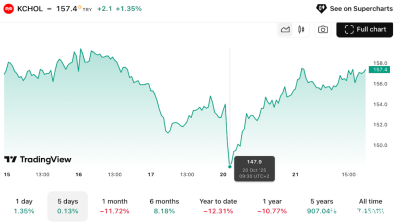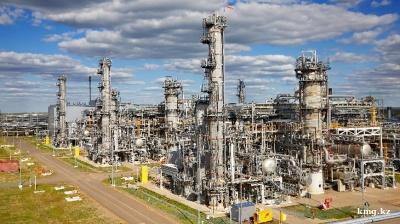In July, Aton Capital’s affluent and high-net-worth clients continued to reduce their equity positions due to rising US-Russia tensions, and boosted exposure to Eurobonds and government bonds using the local jump in yields as a buying opportunity.
Toward the end of August the ruble-denominated Moscow Interbank Currency Exchange (MICEX) is down 13% YTD and its sister index the dollar-denominated Russia Trading System (RTS) is down 10%, which is still an improvement on the spring when the markets were down about 17%. However, the Russian stock market is largely flat and the RTS trading around the 1,000 market with no triggers in sight to lift it from this level.
Short-term action
Most of the action remains at the corporate level where there are some good stories. A surge in corn and wheat prices, as well as a rebound in urea from multi-year lows spurred investors’ interest in chemicals, reported Aton in its August monthly stock market wrap. However, with Russia expected to put in another exceptional harvest this year the prices on commodity markets are falling that has taken some of the wind out of this story.
Investors took profits in Russian online giant Yandex following the stock’s rally on the agreement to merge ride-hailing operations with Uber, and bought the utilities company Rosseti (RSTI) on results. Yandex surged a whopping 20% on the agreement to merge ride-hailing operations with Uber.
“The investment style was cherry-picking among exporters that benefit from a weaker ruble, as there was appetite for names that are still cheap, trading below 4x EBITDA,” Aton said in its report.
Russia’s bond story remains strong and now the inflation shock from middle of the year is wearing off – fruit and veg prices spiked following storms in May, but have since fallen back – the Central Bank of Russia (CBR) is expected to go back to easing monetary policy that is supporting appetite for bonds.
“Appetite for fixed income instruments returned as retail investors bought Eurobonds (+29% vs the monthly average), and sovereign bonds (+17%),” Aton said. “Yields have increased to local highs on concerns about Fed tightening that provided a buying opportunity.”
The dollar continued to fall in July, losing another 3.5% vs other currencies, and investors cut their dollar cash exposure (-36%).
In general investors preferred bonds to equities, which remain out of favour for the second month in a row (-23%) on tensions between Russia and the US, including a new round of sanctions, and slashing US diplomatic staff in Russia.
The rally in soft commodity prices, corn (+10% to $4.15/bu) and wheat (+19% to $5.8/bu), and a urea-price rebound from multi-year lows put the chemicals sector in retail investors’ focus where equity positions increased 18% vs the monthly average. However, Aton has a hold rating on the sector, as it sees pressure from new volumes entering the market in 2H17-18.
The oil and gas names took most of the heat from the new US sanctions that lead to 15% outflows on risks that the new packet of sanctions could affect development projects (including Gazprom pipelines), and access to capital for state-owned energy companies.
Utilities have been popular amongst equity investors as most of the companies have finished their capital expenditure programmes and are paying out better dividends as a result.
“Shares of Rossetti’s subsidiaries rallied in July on their Russian Accounting Standards (RAS) numbers with positive read-across for dividends, and retail investors bought Rossetti as a catch-up play,” said Aton.
In July, retail clients focussed on companies that benefit from a weaker RUB (+1 % vs the monthly average) and are still relatively cheap – trading below 4.0x 2017 EV/EBITDA, Aton reported.
Long-term action
The steel sector has been attracting the attention of investors. While the Russian stock market has not really moved this year, Novolipetsk Meatllurgical Kombinat (NLMK) has seen its shares increased by just over 200% since January on the back of strong steel prices.
Evraz is another stock that is attracting attention after its earnings doubled in a year and it announced in August that it was going to pay dividends for the first time in years. Aton increased its target price on the stock to GBP290, saying the bank had, “underestimated the sustainability of the coking coal rally, and the company’s potential to deleverage.”
The iconic Magnitogorsk Iron and Steel Works (MMK) has also been having a stellar year and is marked a buy by Aton and BCS. “MMK benefits from the lowest integration into raw materials as the current steel-over-bulks premium is at a record high. It is also buoyed by its domestic exposure as local prices are expected to continue rising. MMK remains cheap at 3.7x EV/EBITDA, trading at a 26% discount to Russian peers, while offering an 8% dividend yield and a strong balance sheet (0.1x net leverage). A free float increase and MSCI inclusion are still possible in 2H17, which would boost liquidity and attract passive inflows,” Aton said in the note.
The danger going forward is that demand from China that has driven prices up this year is about to wear off.
BCS Financial Group is also plugging steel and mining names that benefit from a weaker ruble. The ruble has rallied this year, but economists at investment banks widely believe the currency will weaken in the second half of the year, improving the profitability at raw material producers.
In addition to the mining sector supermarket chain X5 Group remains an investors’ darling, having overtaken its rival Magnit at then end of last year to become the largest retailer in Russia in turnover terms. Magnit remains slightly more profitable, however, its stock price was flat last year and is down 10% YTD, while that of X5 doubled in 2016 and is up 20% YTD.
And with X5 doing so well there is now some spill over into its smaller rival Lenta that is also doing well. BCS singles it out as the most efficient retailer in the market but with a price-to-earnings ratio (p/e) of 10.7 it is the cheapest stock in the sector.
Finally Sberbank remains Russia’s “tourist stock” – the name investors with very limited appetite for Russian equities will buy first as a simply proxy for Russia’s economic performance. BCS says the state-owned retail banking giant still has some upside given a p/e ratio of only 5.6.





News

Grand master mason arrested as part of Turkey’s Can Holding investigation
Second wave of detentions executed.

Istanbul prosecutors summon Koc official and Akfen boss in Imamoglu investigation
Word of move sparked volatility in stocks.

Ukrainian military strike for first time disrupts operations of Western oil majors
Drone attack damage caused to Russian gas processing plant forces scaling back of output at Kazakh field partly owned by Chevron, Shell and Eni.
_Foto2_Divulgação_Foresea_(1)_1761062969.jpg)
Petrobras secures controversial Amazon drilling licence ahead of COP30 climate summit
Brazil's Petrobras has obtained authorisation to drill an exploratory well near the mouth of the Amazon River, sparking fierce criticism from conservationists just weeks before Brazil hosts UN climate talks.
_1761050969.jpg)



_2_1761012864.jpg)